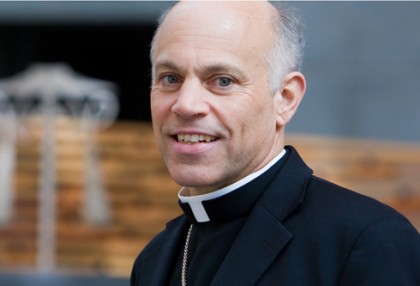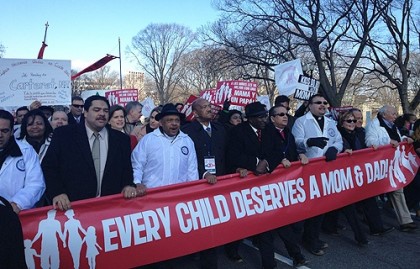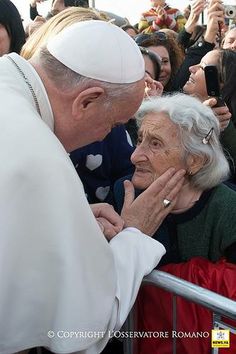“Dialogue” and “Encounter”: Archbishop Cordileone Reclaims a Couple of Buzzwords
Devra Torres | Jun 19, 2014
Very early in my writing career (that is, a couple years ago), I wrote a post called “Diversity: Reclaiming a Buzzword.” The term had been hijacked: reduced to a code word for relativism and indifferentism, with anti-patriotic connotations thrown in for good measure.
And yet, it’s a perfectly good word. It should never have been ceded to people with as little imagination as the bureaucrats and politicians who use it the most.

It occurred to me yesterday, reading Archbishop Cordileone's response to Nancy Pelosi's warning to withdraw from today's March for Marriage, that a lot more words could use rehabilitating. We might start with “dialogue” and “encounter.”


These two terms have made plenty of trouble lately. They’ve been something of a stumbling block for many people when it comes to Pope Francis, and you can see why. In the secular West, they’re code words. They mean, “If you would just sit down and talk to your fellow human being, you’d discover that it doesn’t much matter what’s true and false, good and evil, right and wrong. As long as you’re dialoguing.”

How did we allow the hijacking of something so basic: two people treating each other as fellow human beings, rather than assuming, projecting, dwarfing, prejudging, labeling and dismissing each other?
Trust in dialogue sounds naïve at best, "indifferentist" at worst. Besides, it requires that the other party be genuinely interested in getting somewhere, too. How could a realistic, intelligent person place any hope in dialogue these days?
Well, the Archbishop of San Francisco, Salvatore Cordileone--nobody's pushover and nobody's intellectual lightweight--sure seems to do so. In a peculiar breech of the wall of separation between Church and State, Senator Nancy Pelosi recently warned him to stay away from today’s March for Marriage.

His letter of response is a striking model of a straightforward refusal to back down and a heartfelt call for dialogue and encounter.
Here’s a portion of the first part:
I appreciate your affirmation of my Church’s teaching—not unique to our religion, but a truth accessible to anyone of good will—on the intrinsic human dignity of all people, irrespective of their stage and condition in life.
This is interesting: he gives his opponent credit for affirming such a principle, not churlishly or sarcastically seeking to prove that in fact she does no such thing.
That principle requires us to respect and protect each and every member of the human family, from the precious child in the womb to the frail elderly person nearing death.
Here’s something she certainly doesn’t hold, yet he doesn't belabor that.
It also requires me, as a bishop, to proclaim the truth—the whole truth—about the human person and God’s will for our flourishing. I must do that in season and out of season, even when truths that it is my duty to uphold and teach are unpopular, including especially the truth about marriage as the conjugal union of husband and wife.

Then, in a transition that might sound schizophrenic to someone who thinks truth and dialogue don’t belong in the same sentence, he makes the following appeal:
Please do not make judgments based on stereotypes, media images and comments taken out of context. Rather, get to know us first as fellow human beings. I myself am willing to meet personally with any of you not only to dialogue, but simply so that we can get to know each other.
In other words, the pursuit of dialogue is not just a pretext, or a tactic.

It is the personal encounter that changes the vision of the other and softens the heart.
In the end, love is the answer, and this can happen even between people with such deep disagreements.
Yes, there are "deep disagreements," and those who value dialogue don’t have to pretend there aren’t.
That may sound fanciful and far-fetched, but it is true, it is possible. I know it is possible. I know this from personal experience.
Doesn't that whet your appetite for more details?
When we come together seeking to understand the other with good will, miracles can happen.
When all is said and done, then, there is only one thing that I would ask of you more than anything else: before you judge us, get to know us.
* * * * *
These days you hear a lot less about diversity than about equality. But whatever the buzzword du jour, rehabilitation is worthwhile. The more anti-hijacking we can pull off, the better for all of us.


